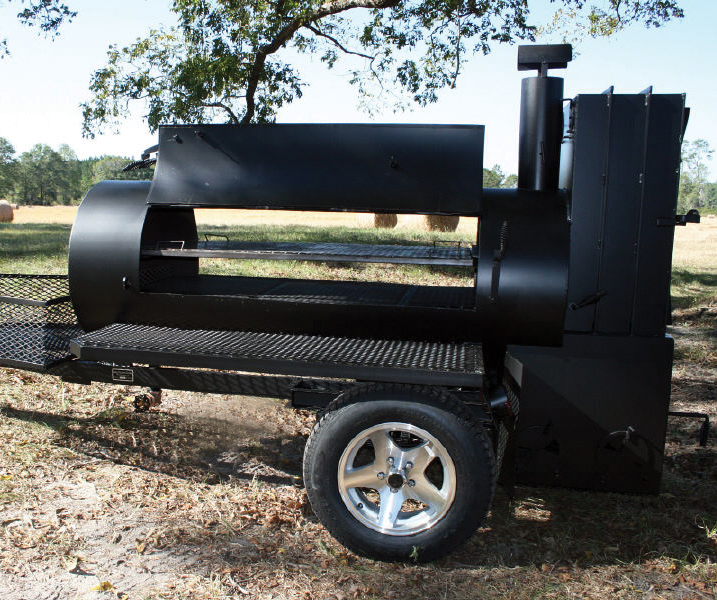“What makes a good rub?” asks Varty. “That’s a deeply personal question. What I want is something that’s going to add flavour but not overpower the meat. I don’t want to just taste smoke or the rub. I want to taste pork. It has to enhance what it’s on.”
” [A good rub is] something that is that versatile, that doesn’t have to be pigeonholed into one specific protein,” says Bjorn Cochran, co-owner of Sloppy Hoggs Roed Hus, Edmonton’s newest addition the barbecue diner circuit.
But making rubs and buying smokers is easy, says McMillan. The rest is technique. “It’s trial and error until you get it down, but once you get it down it’s dialled in.”
With that figured out, he can feed up to 70 people. “As soon as the weather’s decent enough, I’m barbecuing all the way until it’s shitty,” says the tattooed concert promoter. He’s smoked ribs southern style, pulled pork with Carolina care and chicken like a true Jamaican. He’s even done goat. He’s turned his attention to brisket, the underbelly commonly used for corned beef. “That’s the tough one.”
One problem is finding brisket that hasn’t had the fat chopped off. Barbecue mavens want fat. It’s their friend. Smoked right, it renders into the meat and makes it so moist and juicy it dribbles down chins. But most butchers trim the fat off specialty cuts like brisket and pork shoulder. However, some have started taking cues from folks like Varty and McMillan.
“They come here for specialty cuts you can’t get at your local grocery store,” says Darcy Boisvert, co-owner and butcher at Real Deal Meats. “Some guys want anything from two-inch pork chops to two-inch ribeye to fresh beef brisket or pork shoulder butt, or Boston butt. You can find these if you look hard enough, but we carry them regularly.”
Boisvert isn’t so much catering to the enthusiasts as he is to himself. He’s been smoking for 11 years and, four years ago, bought a Vortron, a $90,000 smoker that looks just like it sounds: a 12-foot-tall wood-gorging machine with a capacity to turn 230 kilograms of poor man’s meat into a small luxury.
Every Saturday between 5 and 6 p.m., customers come to Real Deal Meats to pick up orders of up to 2.3 kg each of a single smoked meat from the rotating menu. So, if your weekend barbecue goes terribly awry – if your rub tastes like sand and your meat is tough as rocks and your wood smells like sap – Vortron’s got you covered.
Like this content? Get more delivered right to your inbox with Ed. Eats
A list of what’s delicious, delectable and delightful.
